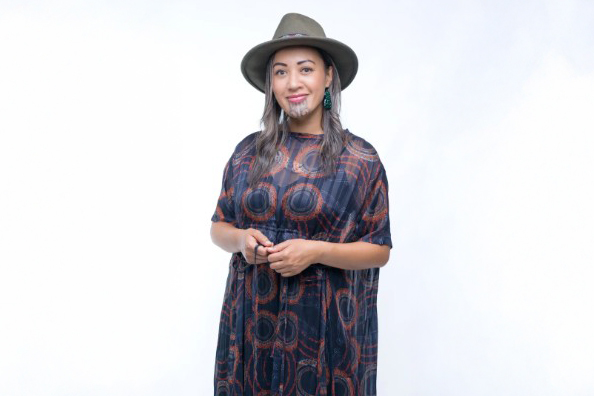This month we once again greeted Matariki as the star constellation rose above the eastern horizons to herald a new year in te Ao Māori.
Matariki is a time for renewal, a time for celebration, a time to plan for the year ahead and a time for reflection.
Matariki is also a time for new beginnings, and that’s what New Zealand is facing in the post-COVID world, so I believe it’s an ideal time to re-set 2020 and look to the future and the challenges we collectively face.
At Te Wānanga o Aotearoa we’ve got our work cut out, with the Ministry of Education forecasting a 34 per cent increase in wānanga enrolments in 2021 due to the impacts of COVID-19. We need to be ready to support our tauira with the same inclusive, safe and transformative indigenous education Te Wānanga o Aotearoa has been providing for 35 years.
Over that time we’ve witnessed the growing wave of interest in learning about te Ao Māori, and it’s no longer possible to ignore the role mātauranga Māori plays in Aotearoa society.
Mātauranga Māori is that body of knowledge that comes from a Māori world view. Wānanga are learning institutions committed to developing bilingual and culturally adept graduates who can live fulfilled and enriched lives in Aotearoa and the world. We are a creative and modern representative of the mātauranga tradition.
At Te Wānanga o Aotearoa we not only teach mātauranga Māori, but we also live it every day and have a firm commitment to foster mātauranga Māori throughout Aotearoa. We do this by creating and sharing knowledge gained through our teaching and learning and through building and maintaining strong relationships with tauira, whānau and communities throughout Aotearoa.
We take this commitment seriously and believe that providing a world-class indigenous education based on mātauranga Māori is a critical component in enhancing the cultural identity of Aotearoa.
That’s why I wholeheartedly support moves to make Matariki our first public holiday founded on mātauranga Māori, and not just for a day off.
The idea for a public holiday has the support of Professor Rangi Mataamua, the Tūhoe astronomer and Matariki authority who was recently awarded the Prime Minister’s Science Communication Prize for his work promoting Matariki. It has also prompted thousands of people to sign a petition by community campaigning organisation ActionStation supporting the move.
Part of our role at Te Wānanga o Aotearoa is to increase the use of mātauranga Māori throughout the country, and it is gratifying and empowering to see significant events such as Matariki being embraced not just by whānau, hapu and iwi but by local and central government, community organisations, businesses and people from all parts of society.
Establishing Matariki as a public holiday would be another small but significant step in normalising the use of mātauranga Māori in everyday life in Aotearoa. It would also encourage others to consider ways in which the values of our tūpuna remain relevant today.
As I’ve said before, the answers to many of today’s problems lie in our histories.
And before we move forward, we must also look to the past and remembering those we have lost in the last year is a hugely significant part of Matariki.
In a practice which remains to this day, our tūpuna would mark the rising of Matariki by expressing their grief and reciting the names of those who had died in the last 12 months.
When Matariki appeared this year, it was just four months since New Zealand closed its borders and the impacts of COVID-19 began to be felt across the nation.
In those four months, 22 people lost their lives to COVID-19, a figure which could have been much higher if not for the effective action taken by the government and each and every one of our ‘team of five million’.
Matariki is an opportune time to remember those 22 people. We also remember the 21 people who lost their lives when Whakaari erupted in December, along with the thousands of mothers, fathers, daughters and sons who continue to be grieved for by whānau around the world.
Restrictions on tangihanga during lockdown meant many people continue to seek ways to grieve their loss. Matariki is one such occasion.
It’s timely that Matariki is upon us as we emerge from the economic, personal, and social ravages of COVID-19, and while declaring a public holiday in mid-July seems a simple decision, the meaning and importance of Matariki will always be far more significant than merely a day off work.
When Matariki disappeared from our skies in April or May, our tūpuna knew it was time to preserve crops for the winter season. When it re-appeared in June or July, they would use the stars to help predict the upcoming season for planting, fishing, bird catching and other tasks essential for whānau health.
If the stars appeared clearly and brightly, it was taken as a sign of a productive season ahead while if they appeared hazy and long, a cold winter was expected, so planting of the next season’s crops was delayed until later in the year.
Much like the government’s response to COVID-19, making the wrong judgement would have severe impacts on the health, wellbeing and even survival of whānau.
So the significance of Matariki is clear, and the fact it comes as the country is emerging from the worst pandemic in living memory means we have a perfect opportunity not only to draw a line under the last few months but to re-focus on the road ahead to a future where we can all thrive.
Let’s hope our government makes another good decision and gives Matariki the honour it deserves.
Of course, Matariki is also an important time to spend with whānau and friends – to enjoy kai (food), waiata (song), tākaro (games) and haka.
As we get used to our new normal, let’s do that e te whānau.
Mauri ora.




































